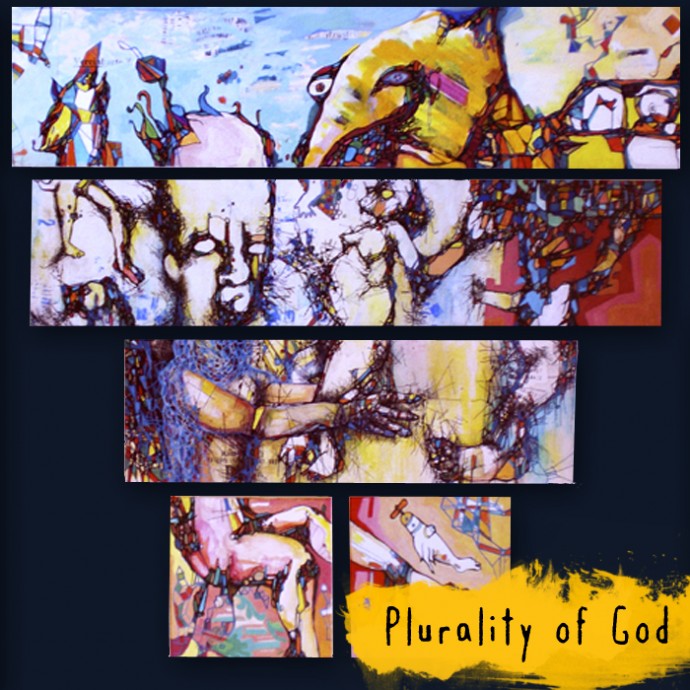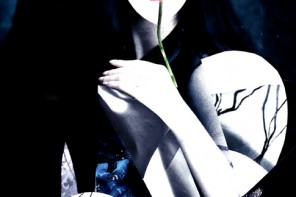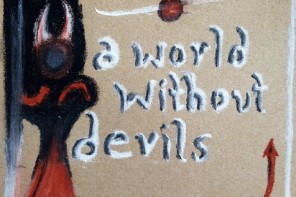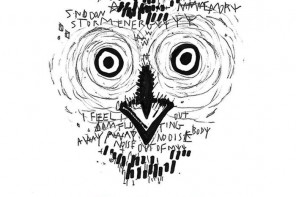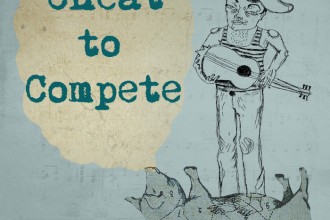Polytheistic religions worship many different Gods. A God/Deity in a Polytheistic system (or Pantheon) is a supernatural being that has otherworldly power and controls certain aspects of the universe. This is contrasted with monotheistic faiths which worship one single omnipotent God that possesses one personality and thus denies the possible existence of others. Cameron Lambert-Vickers (along with Ben and Scott) manage and maintain “The Society for the Protection and Promotion of Polytheism.” In mainstream Western society people are traditionally mostly Monotheistic though in recent times we are trending towards a more Atheistic influence. I contacted Cameron to expand on the what the need to promote and protect Polytheism is.
I am the creator of the Society For The Protection and Promotion of Polytheism, which was founded in November 2011 as a voice for polytheistic communities who I feel are misrepresented in discussions on religion. This came to my attention as I am a follower of Greco-Roman Paganism (or Greco-Roman Polytheism) which is a modern form of the Polytheistic religions of ancient Greece and Rome. I believe in and worship the Gods of Greece and Rome.
I came across my faith online when I was introduced to a group of Hellenic Polytheistic Reconstructionists. Now I’ll briefly explain what this is. Hellenic Polytheistic Reconstructionists are people who aim to revive ancient Greek religion for the modern world and by being as accurate to ancient sources as possible. I felt the urge to help others discover the beauty of the various Polytheistic paths and correct the negative assumptions that have developed around the topic of Polytheism.
The message I’m hoping to reach people with is the idea that Polytheistic religions, whether forms of Hinduism, Wicca, Reconstructionist etc, are all valid spiritual paths that are worthy of respect and of understanding. I also want people to know that there are many religious traditions out there to explore and to not feel trapped by whatever mainstream religion tells them.
I’d say Polytheism is misrepresented to the majority of people around the world as “backwards” and “primitive” which is absurd as Polytheistic paths are complex and often have deep theological/philosophical meanings within them. Although in countries where religious freedom is limited, Polytheistic paths are threatened such was the case of a young Syrian woman who was killed last year. People are often taught from a young age that there is only one God and that to believe in many Gods is what humans did back in more superstitious times. Another assumption, such as with Atheism, is that because we understand the functions of nature there is no need to believe in any deity that controls them. This means we only get half the story and miss out on a fuller understanding of our universe. To use an old expression, it throws the baby out with the bathwater. Just because we understand the workings of rain doesn’t mean that there isn’t or we no longer require a spiritual attachment or understanding as well.
The way this negativity developed I think has a lot to do with how kids are taught religion. More often than not, children are told of a “true” religion/spirituality (generally the religion of their parents or the religion of the society they’ve grown up in) and then only given basic (often negative) information about any other religions. This in turn means that for faiths that are minorities, like Polytheistic ones, most people never get to hear from an unbiased source what those religions are about.
Monotheism has made the Western world a very stagnated place when it comes to spirituality. Western mindset is clouded with ideas of “true” and “false” religions. This comes from the exclusiveness of Monotheistic traditions. In turn this means that people struggle to find spirituality as they often rule out potential belief systems based on this idea which has been drummed into their psyche from childhood. It’s also made the West more bigoted towards minority groups and less flexible towards new ideas. The limited approach causes societies and individuals to close off potential faiths from developing and adding to the culture, arts and well being of the society/individual.
I think the biggest aspect that Monotheism lacks is a plurality of the Divine. Polytheism opens up the individual to seeing the Divine in a more vibrant and exciting way. It allows individuals to worship deities they feel a connection with and there is no guilt felt by the person or implied anger by the other Gods. In Monotheism, the God is often a jealous God who cannot accept people paying respect to other Gods. This makes for intolerance that has appeared throughout history (Such as the Crusades or the forced conversion of the Roman empire). Also Polytheism is a better reflection of society as Polytheistic paths allow spiritual room for groups of people who have often been marginalized by Monotheistic paths such as women and Lesbian/Gay/Bi/Trans people.
The belief in multiple Gods helps to show that everything has a divine connection. Nothing is truly mundane and this thought helps give the individual a new insight which can help release their creativity whether that be artistically or in another form. Monotheism on the other hand has a strong dislike for images of the divine. They often refer to it as “Idolatry” and this form of aniconism (shunning of images of the Divine) is common in Monotheistic traditions. This means that it stunts the creative aspects of religion, in particular the visual arts.
Gods often take on new roles and forms based on the cultures they enter into. For example Harpocrates (the child form of the God Horus/Heru “Heru-pa-khered “) is originally from Egypt but was eventually adopted into the Greek and Roman pantheons. In Egypt polytheism his role is that of protection and a solar deity whereas in the Greco-Roman he became the God of secrets and silence. I’d say the creative force of the individual influences how a Deity is perceived in that particular culture and may influence how rituals are performed. I’m a strong believer in the idea that individuals can form relationships with the Divine and be shown new things by the Gods. In Polytheistic Reconstructionist movements we have a term called UPG (Unverified personal gnosis) this is the idea that an individual’s spiritual experience is valid and although it may not be verified by ancient sources it is still worthy of respect and that it can reveal new aspects of that particular God/Gods.
I was raised in an Anglican household and although we never went to church there was a christian undertone. My primary school also had religious instruction, which was christian and although parents could choose to opt their children out of it, most didn’t. I didn’t really know much about other religions until I started looking into others when I was about 13. This was when I eventually camme across Greco-Roman Paganism and it really struck a chord with me and I felt that I had finally found the right path for me. My spiritual path has given me a new perspective on life and the world around me. I suffered for a while from depression and without my faith I don’t think I would’ve been able to make it through that difficult time. My beliefs have given me new tools to work with in my daily life and to have a better coping mechanism for dealing with hard transitional events.

